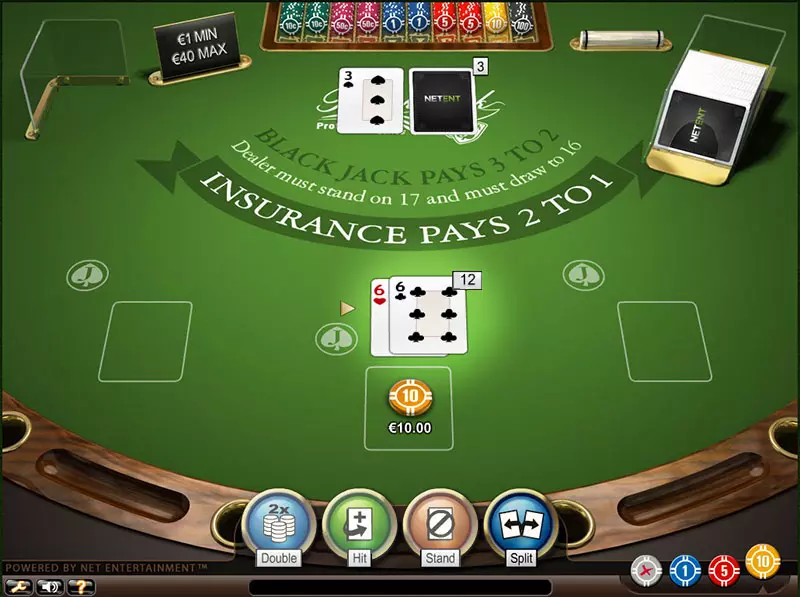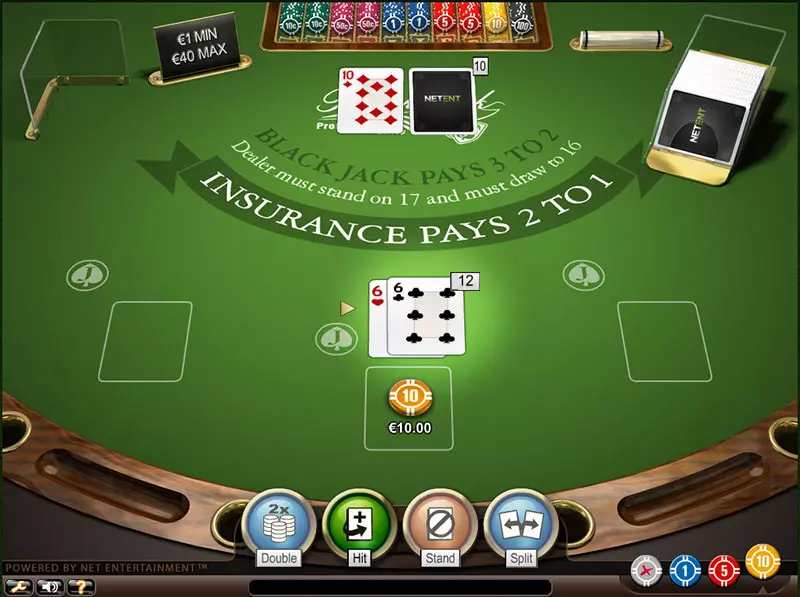In order to win at blackjack, players need to have solid knowledge of the game along with a reliable strategy. Even though the needed preparation for the game does require a lot of efforts and time, it surely pays off at the end. This is the reason why it is one of the most played casino games all over the world.
However, it is no secret that there are many gamblers who have been playing for years but lack many of the basic rules and don’t follow a strategy which dooms them to a certain loss in the long term. Even if they get lucky and win a sequence of hands, all of the money will be quickly lost as without discipline and the needed knowledge it’s impossible to keep them.
It is really important to be familiar with all of the possible hands and their outcomes to play the game efficiently. In many cases whenever players get a pair of 6s, their first thought is to split them. While it is true that splitting is appropriate with such a combination, they need to bear in mind that this is their best choice only in particular situations. In order to find which ones, we must take into account the dealer’s upcard and their two-card holding.
When Players Have a Pair of 6s
In general, getting a pair of 6s as the first two cards is not the best way to start the game. Thus, the most appropriate move in such situations aims at reducing the money loss to the minimum. The reason why is that a pair of 6s leaves players in a breaking position. In other words, their hand’s total is a hard 12, which can result in a bust with just one more hit on their behalf.
If they get any of the face cards or a 10, this will inevitably cause them to go bust and lose the hand. Therefore, having such a pair in their hand is a very delicate position to be in and it is of crucial importance for players to know how to handle it. Splitting should be made only if the dealer’s upcard is weak.
Players who are dealt this card holding have a choice from two viable moves. They can either split the pair and make an additional bet to cover the second hand or hit. Whichever decision they pick is influenced by the strength of the dealer’s exposed card, the deck number used at the table, and the availability of doubling down on pair splits. Consult with the chart below for the recommended basic strategy plays for a pair of 6s in pitch-dealt blackjack.
| 6-6 Basic Strategy for Single- and Double-Deck Blackjack | ||||||||||
|---|---|---|---|---|---|---|---|---|---|---|
| Players’ Hand | Dealer’s Upcard | |||||||||
| 2 | 3 | 4 | 5 | 6 | 7 | 8 | 9 | 10 | Ace | |
| 6-6 | P | P | P | P | P | Ph | H | H | H | H |
As you can see, single- and double-deck players must also split against the dealer’s 7 but only provided the house rules allow them to double after pair splits. If NDAS is in effect, you are better off hitting your hard 12 rather than splitting the 6s. The odds tend to slightly favour hitting 6s at NDAS tables instead of splitting.
Best Moves for Multi-Deck Games when the Dealer’s Upcard Is Weak
As already mentioned, a pair of 6s is a breaking hand and thus, it will be best to be split whenever the upcard of the dealer is from 2 through 6, hoping that at least one of the hands will have a strong total. The reason why is that due to the fact the dealer is in a breaking position, hitting will be inevitably their next move.
The odds of winning in this case are in favour of the players and thus, they should split this pair. Moreover, this way they will prevent themselves from going bust and losing the hand. Players can also take advantage of the weak position of the dealer by doubling down their bet as this situation gives them this favourable opportunity.

Splitting the 6s is a viable move against certain dealer upcards since it helps you decrease your average losses, boost your gains while in favourable spots, and transform bad starting hands into potentially winning ones.
One very good example is a player holding 6s against the dealer’s deuce. The 6s are a bad hand no matter how you choose to play them versus the deuce. Nonetheless, basic strategy recommends splitting with DAS rather than hitting since this move yields the lowest negative EV.
| 6-6 Basic Strategy in Multiple-Deck Blackjack | ||||||||||
|---|---|---|---|---|---|---|---|---|---|---|
| Players’ Hand | Dealer’s Upcard | |||||||||
| 2 | 3 | 4 | 5 | 6 | 7 | 8 | 9 | 10 | Ace | |
| 6-6 | Ph | P | P | P | P | H | H | H | H | H |
It is equally advantageous for players to resplit this pair should they happen to catch one or more 6s after the initial split. For instance, a player gets 6-6 versus a dealer who holds a 4. If another 6 falls on one of the two splits, the player should resplit again to form three individual hands. Many online variations of blackjack permit resplitting to as many as four separate hands. Thus, if splitting your 6s was the optimal play in the first place so is resplitting them against the given upcard.
Splitting a Pair of 2’s or 3’s
Splitting a Pair of 4’s
Splitting a Pair of 5’s
Splitting a Pair of 6’s
Splitting a Pair of 7’s
Best Moves When the Dealer’s Upcard is 7 through Ace
Whenever players have a pair of 6s, there are cases when it is best not to split them and choose another move instead. Such situations occur when the dealer’s upcard is from a 7 through an ace as then, their best choice will be to hit.
This move is applied for the same reason as it is for the rest of the card pairs. Whenever the upcard of the dealer is powerful, players need to take into account their solid position and be extra careful. Splitting in this case will only result in two hands with very low chances of becoming decent ones. Expectation-wise, it is nonsensical to pour more money into splitting versus powerful upcards of the dealer.
Moreover, the odds that they can go bust are low as the only card that can cause them to is a 10, Queen, King, or Jack. If players try to understand the reason behind every move and its logic, it will be much easier for them to remember and apply the strategy.

Doubling Down after Splitting
There are a few important things players should consider before sitting at a table to play blackjack. As indicated previously, doubling down gives them the chance to increase their money bet whenever the dealer is in a weak position. Hence this move is often practised after splitting. You hope to catch a low-value card like 3, 4, or 5 that would allow for a potential successful double down on 10 or 11.
It is indeed a good opportunity for players if they know when to make it. This is the reason why many casinos have restrictions regarding doubling down after splitting. Having a pair of 6s in their hand is a very unfavourable position to start with and it is compulsory for players who want to win to be familiar with what their best move in a particular situation is.
One case that is worth mentioning is when the dealer’s upcard is a 2 as then players should split the pair if doubling down if allowed afterwards. The reason why is that whenever the dealer is in a weak position, players need to get as much money as possible and compensate for the times when they face powerful cards.
Conclusion
Prior to playing blackjack, players need to make sure they are familiar with the basic strategy and have the needed knowledge of the game if their priority is to win. There are a great number of things which they can work on and improve in order to master the game.
One of them is knowing the possible outcomes of every hand they can get and how to proceed accordingly. Splitting a pair of cards of the same rank is not an easy situation to be in even though many players underestimate it.
There are many cases where it is best for players not to split but hit or double down instead as splitting will only leave them in an unfavourable situation. Moreover, having a pair of 6s as the first two cards is a breaking hand and it is of crucial importance for players to know what their best move is.